School of Social Work News
Pages
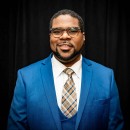 Charles Williams II Featured in CBS Evening News Voting Rights Story
Charles Williams II Featured in CBS Evening News Voting Rights StoryPhD student Charles Williams II was featured on the CBS Evening News in a story on voting rights. “They aren’t securing the vote, they are suppressing the vote,” said Williams in regards to a petition backed by republicans to tighten voter ID requirements in the state of Michigan. Williams is leading local efforts to protect voting rights. “The fight must continue, and I think many people on the ground understand and are very clear that they will not stop until justice comes.”
- January 19, 2022
- Learn more »
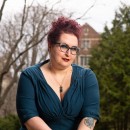 Shanna Kattari and Leonardo Kattari Receive 2022 SSWR Book Award Honorable Mention
Shanna Kattari and Leonardo Kattari Receive 2022 SSWR Book Award Honorable MentionAssistant Professor Shanna Kattari and Lecturer Leonardo Kattari have won the 2022 SSWR Book Award Honorable Mention for the book they co-edited, “Social Work and Health Care Practice with Transgender and Nonbinary Individuals and Communities: Voices for Equity, Inclusion, and Resilience.” The book includes chapters co-authored by Assistant Professor Ashley Lacombe-Duncan, PhD student Mattthew Bakko, alex kime, MSW ‘18, and Jennifer Schwartz, MSW ‘13. The award was presented on Saturday, January 15, as part of the Society of Social Work and Research Annual Conference.
- January 17, 2022
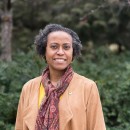 Trina Shanks’ Editorial in Detroit Free Press Encourages Home Ownership in Detroit
Trina Shanks’ Editorial in Detroit Free Press Encourages Home Ownership in DetroitThe conventional mortgage market is not working in Detroit, writes Professor Trina Shanks in a Detroit Free Press editorial. Shanks and her co-authors recommend new programs to support homebuyer education programs and establish a single-family residential rehabilitation fund. “We know the private mortgage market does not serve Detroit in the same way as it does adjacent communities. The evidence is indisputable,” writes Shanks. The article cites data reviewed by the Center for Equitable Family and Community Well-Being that shows that vast swath of Detroit, identified by neighborhood, see very little mortgage lending activity in relation to residential property sales. “We are in a once in a lifetime moment, where substantive federal investments are flowing into Detroit. Let's focus these infrastructure investments in a way that benefits Detroiters.
- January 17, 2022
- Learn more »
- Seven Faculty on Stanford University’s 2021 World's Top 2% Scientists List
Seven U-M SSW faculty are included on Stanford University’s 2021 World's Top 2% Scientists list. The database provides standardized information on citations, h-index, co-authorship-adjusted hm-index, citations to papers in different authorship positions, and a composite indicator.
- Linda Chatters
- Lorraine Gutiérrez
- Todd Herrenkohl
- Joseph Ryan
- Robert Taylor
- Richard Tolman
- Bradley Zebrack
- January 12, 2022
- Learn more »
- Deena Etter, Madeline Loss, Courtney Marsden and Nevo Polonsky Named Presidential Management Fellows
MSW students Deena Etter, Madeline Loss, Courtney Marsden and Nevo Polonsky have been selected to the Presidential Management Fellowship (PMF) Program. Administered by the U.S. Office of Personnel Management, the program attracts outstanding graduate students who have a commitment to excellence in leadership and management of public policies and programs.
- January 6, 2022
- Learn more »
- Bryant Hepp Receives Dow Distinguished Award Funding
MSW student Bryant Hepp is part of an interdisciplinary team that has been awarded $60,000 in funding through the Dow Distinguished Awards competition. The team’s project, “Greening Low-Income, Self-Managed Housing Projects in Brazil,” will implement schematic designs at a designated self-managed housing site. Activities will include planting trees, protecting water springs and creeks, installing educational signage, pathways throughout areas of permanent protection, and construction of communal spaces (pavilions) with pervious surfaces.
U-M’s Dow Distinguished Awards are designed to foster interdisciplinary collaboration and engaged learning at the graduate level.
- January 5, 2022
- Learn more »
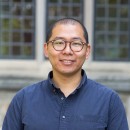 Sunggeun (Ethan) Park Elected Treasurer of the Society for Social Work and Research
Sunggeun (Ethan) Park Elected Treasurer of the Society for Social Work and ResearchAssistant Professor Sunggeun (Ethan) Park has been elected treasurer of the Society for Social Work and Research. In his vision statement, Park listed the following goals: maintaining fiscal accountability and responsibility; promoting inclusive and transparent fiscal decision-making processes and representing the voices of early-stage scholars with marginalized identities and interests. Park will begin his term on February 1.
- January 4, 2022
- Pioneering LGBTQ+ Activist Jim Toy, MSW ‘81, Has Died
Jim Toy, MSW ‘81, has died. Toy’s lifelong LGBTQ+ activism resulted in inclusive policies at the university and legislation at the state and local level. One of those results is the Spectrum Center, which was the first such university office of its kind. Toy received an Honorary Doctor of Humane Letters from U-M last May.
Read more about Toy's life and impact:
Michigan’s first openly gay man, prominent Ann Arbor LGBTQ activist, dies at 91
A Community in Mourning: Michigan Politicians, LGBTQ+ Orgs Honor Jim Toy’s Activist Legacy
Longtime LGBTQ+ activist Jim Toy, first publicly gay man in Michigan, dies at 91
Gentlest But Most Unshakeable Campaigner’ Jim Toy, Michigan LGBTQ+ Trailblazer and Icon, Dies at 91
Memories and Tributes for Jim Toy
Jim was bright, funny, exuded the most humble and positive energy, tirelessly advocated for systems change and discussed the tapestry of his intersectionality, being biracial, gay, growing up poor, long before most of us embraced this concept. Jim impressed upon me and so many students the value and skills to push for social justice change, and always encourage me to "keep misbehaving" which, I do in his honor! The Harvey Milk of Michigan, Jim Toy, has died and left a profound legacy. - a model for us all.Laura SandersI thoroughly enjoyed working with Jim on creating an inclusive and safe environment for the LGBTQ+ community. He will be sorely missed.Paula Allen-MearesIt's hard to have words to express the difference that Jim Toy has made in the world and for so many people. He was a visionary in his work for social justice and did not let fear get in the way of what he knew was right. We are all privileged to have benefitted from the good he has made in the world. We should never forget his courage, vision, and the hard work he put into advancing justice.Lorraine GutiérrezJim was a one-of-a-kind, amazing person. Jim used his gifts to lead to meaningful change! We will all miss him dearly and we will all benefit from his work in the years ahead.Joseph HimleThank you very much, Jim, for your immense amount of service to the community and very meaningful contributions to the LGBTQ community.Christine MacKenzieI first knew Jim as one of my students. We even traveled together to one of my extension classes. Afterward, I invited him to speak to many of my classes. I think of him as a friend and I mourn his loss.Charles GarvinRecordings of Jim Toy
- Transforming Societal Paradigms: Jim Toy at TEDxUofM
- 2021 U-M Commencement
- History of the Spectrum Center
- I am Senior Strong: Jim Toy
- January 3, 2022
 Brad Zebrack Receives the American Psychosocial Oncology Society’s Ruth McCorkle Excellence in Research Mentorship Award
Brad Zebrack Receives the American Psychosocial Oncology Society’s Ruth McCorkle Excellence in Research Mentorship AwardProfessor Brad Zebrack has received the American Psychosocial Oncology Society’s Ruth McCorkle Excellence in Research Mentorship Award. The award honors those who have demonstrated a longstanding commitment to nurturing intellectual growth, career development, professional guidance and positive role modeling in the field of psychosocial oncology.
- December 17, 2021
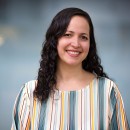 Fernanda Cross Featured on Deutsche Welle (DW)
Fernanda Cross Featured on Deutsche Welle (DW)Assistant Professor Fernanda Cross is featured on Deutsche Welle (DW) website. The article explores her journey to the U.S. and her research at U-M School of Social Work. “It is as an immigrant that Cross finds the necessary empathy for her work. As a researcher, she analyzes precisely the insertion of Latin American immigrants in the United States.”
- December 14, 2021
- Learn more »